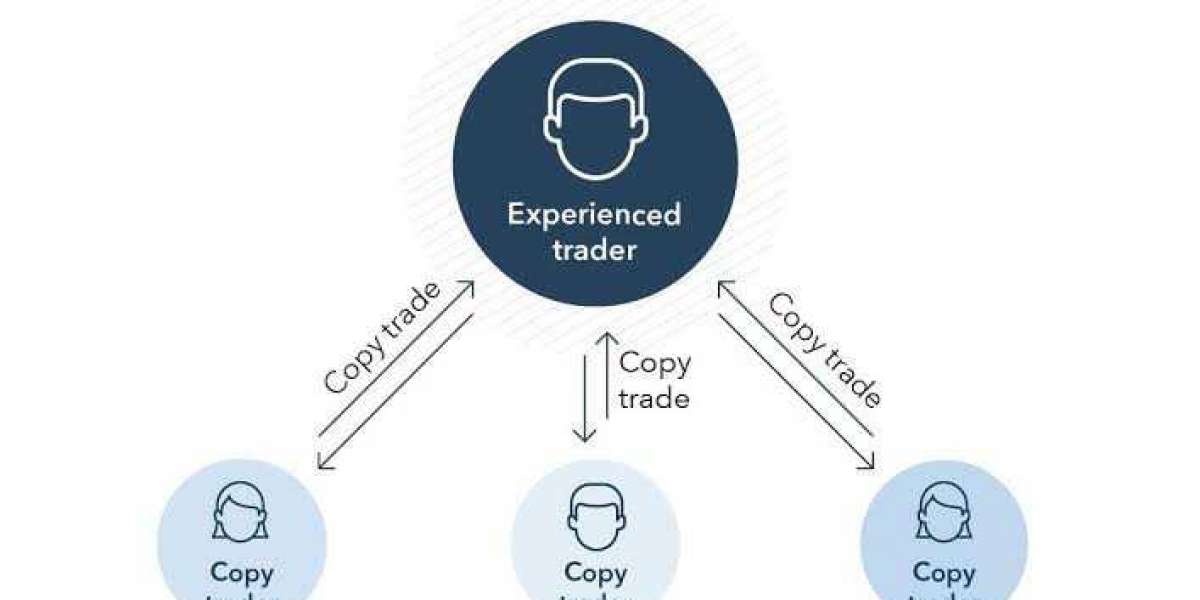The government is an unwelcome intruder into our relationships.
A society is a network of interpersonal relationships. In today's fiat world, an edge should be bilateral and relationships should be direct, but they are not. Most relationships have a central authority and, consequently, a centralized controller. That is not necessarily a negative aspect. When it comes to justice or common standards, it is preferable to have a third party who can find a solution in the midst of conflict. When it restricts the freedom of how people wish to interact, especially when there is no conflict, centralization is problematic.
I do not need to argue that human relationships are essential for a good and happy life. This is a given, and everyone intuitively understands it. As the popular television series "Alone" demonstrates, even people who are adept at self-sufficiency require relationships. Being devoid of human connections is an unpleasant experience. Regardless of how introverted you claim to be, you have at least a few meaningful relationships. In many ways, relationships are what makes life interesting and worthwhile. Relationship networks constitute civilization.
Unfortunately, our relationships, the edges of civilization's network, have become debased. The unwelcome intrusion of authorities into bilateral relationships has resulted in the creation of bureaucracy and the addition of reliable third parties. I've written about this in the context of a particular relationship, marriage, but it applies to a variety of other relationships as well. The presence of fiat currency has drastically degraded the quality of all relationships.
We all intuitively perceive this. Relationships appear especially superficial, with a strong sense of time-preference. Why are first impressions so much more significant today? Why is it so difficult to connect deeply with others? Is life imitating Facebook, where we know numerous superficial details about people but little about their inner selves? Do the majority of individuals even desire deep relationships? The purpose of this essay is to investigate why relationships are obviously flawed.
Strong Time-Preference Relations
One of the most obvious effects of fiat currency is that it encourages behavior with a high time preference. Why save and plan for the future if the currency we use is constantly devalued? The government promises various long-term safety nets, so why not live in the present? The incentives are shifted from long-term planning to short-term enjoyment with fiat currency.
As a result, relationships are not formed with a long-term perspective. Working relationships, friendships, and even familial relationships are formed with a very short-term orientation. In a fiat economy, relationships are expected to provide for the present. It is therefore not surprising that global birth rates are declining everywhere. The parent-child relationship is a very long-term investment, if you think about it. Twenty to thirty years is a long time to wait, and in a fiat economy, such a wait makes little sense.
Unfortunately, a short-term perspective encourages exploitation. Why not burn bridges for your own benefit if you're not committed to a long-term relationship?
Moreover, the transient nature of relationships makes them superficial. People are more concerned with having fun, gaining access, and making their lives more convenient than with their character, their loyalty, or their dependability. Relationships with a high time-preference are more volatile and require a great deal more maintenance. Your relationship is only as strong as your most recent interaction, so if it wasn't enjoyable, interesting, or uplifting in some way, it is likely to end. For instance, if you tell a harsh truth, you may no longer have a relationship.
In a fiat system, people have a higher time preference, and those with a high time preference lack discipline. Consequently, they are more likely to act impulsively and with little regard for the future. Because the initial investment in the relationship was minimal, a large number of people frequently end up burning bridges. This is especially true for those who have no need for your assistance. Many of these individuals are rent-seekers, and they are a blight on modern relationships.
Fiat reduces the importance of reputation
Once upon a time, reputation was crucial to making money. Being a good baker, cobbler, or lawyer meant doing a good job and treating customers with respect. A poor reputation was a swift route to ruin.
Fiat money changed that.
Rent-seeking opportunities abound in a fiat money system and those require little to no reputation. Instead of being subject to market forces of supply and demand, rent-seekers need to only please the money printer. The only relationship that needs to be maintained is with whoever pays the salary. Of course, the payor of the salary usually has certain requirements and standards, but fulfilling requirements requires monitoring. The payor of the salary becomes the trusted third party in the bilateral relationship. Rent seekers will do the minimum they can to meet requirements. The third party’s presence and evaluation debases the relationship.
Contrast this with a market transaction. People that are seeking your business or service are much more likely to self-monitor and invest in the relationship. They have a much longer time-horizon because they are motivated by profit, not by satisfying a boss.
Fiat jobs have essentially made long-term consumer relationships almost unnecessary. Fiat has permeated other relationships and like most fiat things, has infected and debased them like cancer.
Speculative Third Party
Employer-employee relationships are the most blatantly infected by fiat. The relationship is governed by government employment laws. The salaries are taxed, certain benefits are required, and both parties must comply with government mandates. The government is a third party in the relationship, and they create considerable tension.
Financially, it is a tax on the relationship, but the deterioration is also in its substance. Instead of employers and employees creatively determining what would work best for them, the government mandates the nature of their relationship. Consequently, the majority of employer-employee relationships are standardized. There is little innovation or competition because these factors are uniform worldwide.
This is why businesses feel so impersonal and cold. Fiat companies are essentially extensions of the government, and their rent-seeking behavior causes them to lose long-term focus. How many employees feel loyalty to their employer today? People are now expected to leave a company and return to receive a promotion. It costs both the company and the employee a significant amount of money, time, and effort, which a healthy relationship would eliminate.
Even entrepreneurs are not immune to government intervention, as their customer relationships are regulated. The regulations are ostensibly intended to protect one party, but they end up stifling innovation and creativity. If you're wondering why some industries, such as the airline industry, haven't advanced, it's because of these regulations, which unfortunately encompass the majority of the economy today.
Politics Overtakes Everything
Relationships that have money at the center, like employer-employee and producer-consumer relationships are not the only relationships affected by fiat money. Because politics overtakes everything in a fiat-money economy, politics makes its unwelcome entry into even personal relationships.
The prize of getting to print money is such a big incentive that everyone fights over the right to do it for their own group’s benefit. Rent-seeking is a lot easier than serving the needs of the market, so political action takes on an enormous importance. Politics is by nature zero-sum, meaning that getting political benefits requires someone to lose. Thus, advancing the needs of your group is naturally going to conflict with the needs of another group.
The political arguments also become morally charged. Every argument for money ends up being a moral argument. There’s a huge incentive to claim victimhood so that the moral argument for money becomes more viable. The bigger your victim status, the bigger moral claim to newly printed money you have.
Relationships are now tinged with that victimhood status and ultimately, become monetary. The balance of payment in victimhood becomes a monetary payment through fiat money. Thus, your relationship with people in another political group has an implied third party in fiat money.
People within your group create an echo-chamber quality in it, where saying something politically in opposition to that group is liable to get you ostracized. After all, you’re costing them money! Fiat money reduces our relationships to the surface-level support of political ends. They feel shallow because they are.
Status Games
The political and rent-seeking nature of relationships means that status takes on a huge importance. You cannot make money in a fiat economy without climbing the status ladder. Unlike a market economy where innovation, creativity and useful goods and services make you money, in a fiat economy, having the right opinions, having the right political skills and having the ability to make a good first impression are what get you in with the money printer.
This is reflected in the relationships we have. People are seeking your vote or support within your in-group so they can climb the status ladder. Organizations become larger versions of middle school with all the backstabbing, gossiping and shallowness. Even worse, relationships get dropped the minute they are no longer politically expedient. Thus, they tend to not last very long.
Contrast this to market economies, where the goods and services matter much more. The goods and services ultimately make the impression, not the political abilities of the person selling them. Further, market transactions tend to be much longer-term. Switching costs are real and people tend to want higher quality over time. Relationships in a market economy cannot afford to be fly-by-night. You can’t just burn bridges without it costing you money.
Friendship
Unfortunately, this political game is all too common in friend groups, causing them to have a much higher preference for time. Due to the political nature of the group, status is more important than any bilateral relationship, and as a result, people in friend groups come and go much more frequently. Who desires to be at the bottom of a status hierarchy when there are other opportunities?
One of the saddest things I've witnessed over the years is the proliferation of MLM-style schemes on Facebook in which individuals sell products to their friends for a commission. People view their friendships as a source of income and are willing to exploit them for this purpose. Such conduct degrades the relationship because it introduces money into the equation, and most individuals are too polite to call out such conduct. Due to the rent-seeking, a large number of bridges are burned and relationships are destroyed.
Power-Subject Relationships
The peculiarity of democracy is that, at least nominally, the government must obtain the consent of the governed. Consent of the governed is an excellent quality. However, when fiat currency enters the equation, deceitful governance ensues.
In actuality, we are constantly propagandized to believe that everything is going swimmingly, or at least that the authorities are doing a good job. Because the prize of newly printed money is so large, authorities are incentivized to gain our support. If they can obtain our votes through deceit, rhetoric, and propaganda while simultaneously isolating 49 percent of the population, they will. Since the truth is unpleasant, the incentive is to lie and deceive. This is not a solid basis for a relationship. This is reflected in the cynicism, skepticism, and outright hostility towards the political system.
Bitcoin Fixes This
One of the remarkable things about my journey in Bitcoin has been the quality of relationships I’ve had the pleasure of developing. There are a lot of good and interesting people in this space and I’m fortunate to be friends with many of them.
The incentives of Bitcoin are very different from fiat money. What I’ve seen is that the high time-preference people will show themselves. Indeed, many people recently have burned bridges by condemning Bitcoin Maximalists and their harsh truths. I see these people as still being under fiat influence. The people that have stayed, though, are many and they are not liable to go away easily because there’s simply more character and loyalty in this group.
Bitcoin is different and changes the incentives in relationships. We care more deeply about the long term because we have savings and can plan for that. Relationships matter and weeding out the bad ones is just as important as keeping the good ones. Bitcoiners instinctively know this from the many affinity-scamming altcoiners in our space. The relationships that last are self-selecting. It’s a beautiful system of how relationships ought to be.
Let’s make relationships deep again.




Believe Asukpa 2 yrs
Nice